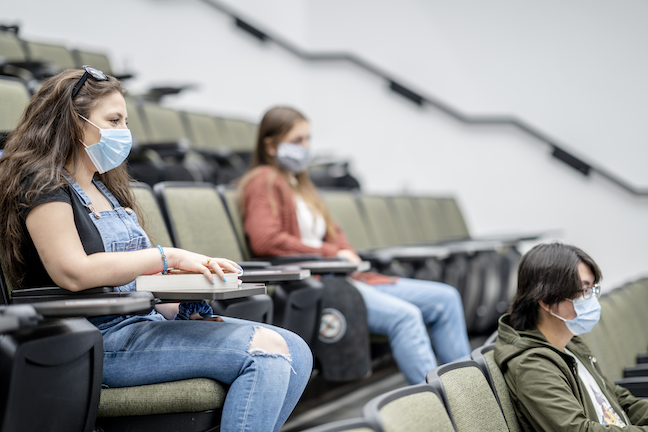
School-Based Management Amidst COVID-19 Challenges
Introduction
The impacts of the rapid spread of the COVID -19 pandemic are affecting various fields worldwide. All people in this world confront many challenges in carrying out the normal activities of them because of the impacts of COVID – 19 in diverse ways on society around the world. When we take account of the impacts of the COVID-19 pandemic, the field of education is not exceptional. Have we as educators, pupils, and parents ever thought of the impacts of the COVID-19 pandemic in the field of education? If the answer is yes, how has the field of education been affected? This article will answer those two questions, especially focusing on the impact of School-based Management. The largest disruption of education has been created by the COVID-19 in history, affecting nearly 1.6 billion learners in more than 190 countries and all continents. Closures of schools and other learning spaces have impacted 94 % of the world’s student population up to 99 % in low and lower-middle-income countries.
According to a UNESCO report, most governments around the world have temporally shut down educational institutions to quell the spread of the COVID-19 pandemic. Moreover, the report says the nationwide closures of educational institutions are impacting over 60% of the world’s student population. In the education system of the countries in the world, how has COVID – 19 pandemic made challenges, especially in comparison with other fields, such as economy, Agriculture, culture, and social structure? It has totally disrupted the education system, especially school education. Although few numbers schools in some countries have started to reopen the schools with the aim of bringing them into the normal condition again, the situation is not apt to do that.
The management system of educational institutions, the teaching and learning process, extracurricular activities, student attendance, the parents’ interaction with educational institutions, and the social outputs of the educational institutions are the aspects, which have been affected by the COVID-19 pandemic challenges. Among them, the management system is very important when we think about the other aspects to be accomplished successfully. All the challenges made by COVID – 19 pandemic in the management system are crucial, especially as the management system of schools has been mostly affected while all other activities of schools remain unstable. The school management process is specifically including all the activities which are done by the school stakeholders in line with strengthening the school system all over the world. The concept of school-based management is specifically implemented by all countries with the intention of school development through decentralization in education. The function of School-based Management is not normal, and it affects the main school management procedure in various ways. This article will explain how School-based Management has been affected by the COVID-19 challenges.
The concept of School-based Management
In response to the concept of decentralization trend in the education system, School-based Management has been implemented in the school system of all countries in a wide range of social contexts since the 1980s. The main aim of a school-based management system is to develop the school system in various fields. School-Based Management is a pragmatic approach to a formal alteration of the bureaucratic model of school administration with a more democratic structure. It identifies the individual school as the primary unit of improvement relying on the redistribution of decision-making authority through which improvements in a school are stimulated and sustained (Agustinus Bandur, 2008). School-based Management is very popular, and it has been introduced in all countries with diverse education systems. The main purpose of SBM is to develop the state of the school with adequate resources. When SBM faces challenges, the total development of schools is stalemated in various ways.
Moreover, there are four main models in SBM: Administrative-control, Professional-control, Community-control, and Balanced-control. These models clearly explain the role of all the stakeholders, such as educational officers, principals, teachers, students, past students, and parents in the development of the school. As we all know, due to the rapid COVID- 19 invasion around the world, the effectiveness of SBM is not up to a high level. It has been facing challenges in many ways where the schools are temporarily open at present. How have COVID – 19 challenges disrupted the effective implementation and practice of SBM without developing the school system well? As mentioned above, the four models of SBM are facing many challenges. This condition makes the education level down around the world. Let’s see how each model of SBM has been affected due to COVID-19 challenges at present.
Administrative-control
SBM devolves authority to the school principal. This model aims to make each school more accountable to the main part of the management process. Amidst COVID-19, the principals of all schools confront various challenges in taking over the activities of the school. As a result, all school activities are being delayed including the teaching and learning process. With the authority given to all the school principals, they are unable to continue their activities towards school development. According to a UNESCO report on International Teachers’ day 2020, over 63 million teachers have been affected by COVID 19. This amount includes school principals also. Since all the school activities, such as teaching, learning, curriculum development, and evaluation of school performance, depend on the administrative-control model of SMB, the impact of COVID 19 on SBM has made everything in an unusual manner.
Professional-control
How has the professional-control model of SBM been affected by COVID 19 challenges? This question definitely leads us to emphasize the role of teachers in SBM and the challenges faced by them during the COVID 19 pandemic time. Not only in the role of teaching but teachers also take part in other activities of school development, such as decision making, curriculum development, and interaction with parents. As mentioned above, over 63 million teachers have been affected, and they are still struggling to continue teaching at schools and even continue their professional studies. As a result, the contribution of teachers in SBM has fallen down in various ways.
Community-Control
Community-control of SBM fully depends on the support of parents and the community in the effectiveness of SBM. Here, parents’ needs are fulfilled towards their children fulfilled by the teachers and principals. The COVID-19 pandemic has created an environment of being away from the interaction of teachers and principals. As many countries have been using digital tools and virtual exchanges for communication between students and teachers, principals and teachers, and other education officials, most parents lack behind as they do not have the facility for digital tools and they are unaware of using that. Like other SBM models, community control also has faced a lot of challenges by COVID 19 disruptions worldwide.
Balanced-control
This is the final model of SBM, which emphasizes the importance of both teachers and parents in school-based management. The main functions of this model are the roles and teachers’ contributions in the school management and the ways in which the community benefits from their children’s education. The COVID 19 disruptions have made so many challenges in balance-control without the support of teachers and community or parents. Thus, the COVID-19 disruptions have created so many challenges in the effectiveness of SBM.
In a nutshell, the challenges by COVID 19 pandemic we are now facing are very crucial in every field of human life. The world of education is confronting various issues regarding the management process, including teaching, learning, curriculum, and parents’ interaction. With the hope that everything will be healed one day as educators, we have to strive hard to fight against the challenges.
R.Vivekanantharasa
Lecturer
Department of Secondary and Tertiary Education
Faculty of Education
The Open University of Sri Lanka
References
Augustinus.B., 2008, A STUDY OF THE IMPLEMENTATION OF SCHOOL-BASED MANAGEMENT IN FLORES PRIMARY SCHOOLS IN INDONESIA, The University of Newcastle, Australia.
Felipe Barrera- Osorio, Tazeen. F., and Harry Antony.P. 2009.Decentralized Decision-Making in Schools, The International Bank for Reconstruction and Development/ The World Bank.
UNESCO, 2020, With over 63 million teachers impacted by the COVID-19 crisis, on World Teachers’ Day, UNESCO urges increased investment in teachers for Learning Recovery, Press release.

